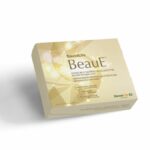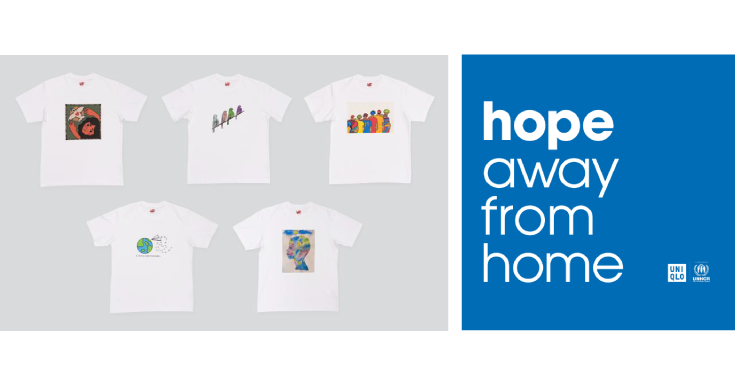40 Ways You Can Go Green Today!
You can easily go green in your daily lives at home and at the workplace. With patience and practice, you can even make a habit out of it where green living becomes a part of your everyday life. Start today and do your bit to save Mother Earth!
1. Use energy saving light bulbs or LED lights in your home and office as much as possible.
2. Save time, petrol and paper receipts by paying your bills online wherever possible.
3. Car Pool or Use Public Transport. Not only will car-pooling help to decrease harmful emissions in our atmosphere, it allows us to save money on fuel, parking and other vehicle expenses. With public transportation, you may even have the opportunity for a little exercise.
4. Turn off or unplug appliances when you’re not using them. Alternatively, you could install a ‘smart’ power strip that senses when an appliance is not in use, thereby preventing ‘vampire’ energy. Don’t just leave your computer on standby mode. Turn it off every night.
5. Turn off the tap when you’re brushing your teeth – even if only for 2 minutes.
6. Dry your clothes on a clothes line outdoors. Avoid using the dryer unless you have absolutely no choice.
7. Wash your clothes in cold water as 85 percent of the energy is used by the washing machine to heat the water.
8. Instead of buying bottled water, install a water filter at home for drinking. The bottles itself generate a lot of wastes.
9. Be frugal with buying toys – Recycle wastes like egg cartons into arts & crafts items for the kids. Look here for interesting ideas on how to recycle home wastes: www.home-designing.com/2010/01/recycled-home-decor
10. Plant your own herbs and vegetables. This is the best and cheapest way to get the tastiest organic vegetables imaginable. Not only does it ensure cheap, pesticide-free food for your family, the food doesn’t have to be transported to you via a truck that uses non-renewable energy. Now that’s eco-friendly living!
11. Compost your kitchen and garden wastes to reduce rubbish in the environment and also to produce your own organic compost for your vegetable garden.
12. Have one vegetarian meal a week if you’re a meat eater. Meat costs a lot by the time it gets to the store when you consider the animal feed, manpower resources and transportation costs.
13. Bring your own reusable bags when you go grocery shopping.
14. Always turn off the lights when you leave the room. Try not to turn on the lights for as long as you can every day by opening your curtains and enjoy the natural lighting.
15. Fix any leaky faucets in the house and the garden.
16. Take shorter showers to reduce water use and heating bills as well. Adjust the water heater to the lowest possible setting to save on electricity.
17. Plant drought-tolerant native plants in your garden like pineapples, jackfruit and soursop trees. To add some colours, the Bougainvillea plant is a good choice. Once established, they need minimal watering.
18. Buy locally raised fresh organic meat, vegetables, eggs and dairy whenever you can. Purchase from the local farmers to keep the money in the local economy and also help lessen the carbon footprint on the environment. Furthermore, fresh foods are better for your health as opposed to highly processed food.
19. If you are not a vegetarian, eat food that is low on the food chain. This is especially true for seafood.
20. Have different recycling bins in your home to separate plastics, aluminium, paper and glass. It may be extra work but after a while, putting all the items in a plastic bag and dropping them off at the nearest recycling centre will become routine in your life. Recycling a four-foot stack of newspapers saves the equivalent of one 40-foot fir tree.
21. Bring a reusable water bottle, preferably aluminium rather than plastic with you when travelling or at work. This will help to decrease the need to buy bottled water thus reducing wastes.
22. Buy second-hand products whenever possible. Whether you’ve just moved or looking to redecorate, it’s fun to go online or check out garage sales and thrift stores. One man’s trash is another man’s treasure. Rather than throwing out items you no longer have a use for, try organising a neighbourhood swap meet twice a year where no money changes hands.
23. Borrow instead of buying. Borrow from libraries instead of buying personal books and movies. This saves money, not to mention the ink and paper that goes into printing new books. Share power tools and other appliances with friends, relatives and neighbours.
24. Buy in bulk. Purchasing food and other staples like toilet paper from bulk bins can save on money and packaging.
25. Buy clothes that don’t need to be dry-cleaned. This saves money and cuts down on toxic chemical use.
26. Collect rainwater in pails or buckets and use it to water your houseplants and garden.
27. Use cloth instead of paper to clean your kitchen. Recycle those old T-shirts, towels or other bits of old clothing to make rags out of it.
28. Use your cell phones, computers and other electronics as long as possible. Donate or recycle them responsibly when the time comes to replace them. E-waste contains mercury and other toxics that has become a growing environmental problem.
29. Make your own toxic-free cleaners whenever you need them. All you need are a few simple ingredients like baking soda, vinegar, lemon and soap. Making your own cleaning products saves money, time and packaging – not to mention your indoor air quality.
30. Use solar energy in your home. There are different ways to reduce your energy expense and carbon footprint by going solar. You can start in the garden with solar lighting, garden fountains and pond pumps. For indoors, go solar for hot water and air-conditioning just to name a few.
31. Reuse shoeboxes and small containers. Use them to store small toys, recipes, odds and ends, art and sewing supplies, receipts, coupons etc.
32. Keep broken glass and colourful plates to reuse and recreate into a mosaic masterpiece. You can mosaic a coffee-table top or the border of a mirror.
33. Don’t speed on the roads. Driving long distance at 80-90km per hour is the most economical fuel consumption you will get out of your car. Once a month, check the air pressure in your tire. Having the recommended air pressure will optimise your fuel consumption too.
34. Donate all your unused items, clothes and children’s toys to the thrift stores such as Goodwill or Salvation Army. You’ll be recycling perfectly usable items while performing a charitable act as well.
35. Recycle old greeting cards into bookmarks or decorative embellishments for your scrapbooks or even a new card. Make gift tags by cutting an old card, punching a hole in the corner and tying the pieces together. Add the name and a note inside. Or you can cut off the side with the picture (if there is no writing on the reverse side) and reuse as a post card. Pay only postcard postage!
36. Avoid buying plastic utensils. Use silverware instead. Keep the plastic utensils you get from fast-food restaurants to use during barbecues, picnics and camping trips. You can also put it into your kid’s lunchbox. Always reuse them until they break.
37. Use your old toothbrushes for polishing your shoes. This is especially useful for where the shoe meets the sole. You can also use it to clean threaded mechanical parts, combs and the grooves between the tiles in your bathroom.
38. Recycle old CDs by using them as coasters or paint them to use as Christmas tree ornaments.
39. Consider the source of the material and use environmentally friendly clothing, shopping bags, beddings and towels. Environmentally benign fabrics include organic cotton, bamboo and hemp. Not only are they friendly, they are also durable and soft.
40. Use natural products for beauty remedies. There is no better way to look and feel good than using natural beauty recipes and products to nourish your skin – without those nasty toxins found in over the counter products. Mash an avocado with oats for your weekly facial mask. Rub slices of potatoes on your face to tone and tighten pores. Use lemon juice instead of whitening creams to bleach blemishes.





















Leave a comment